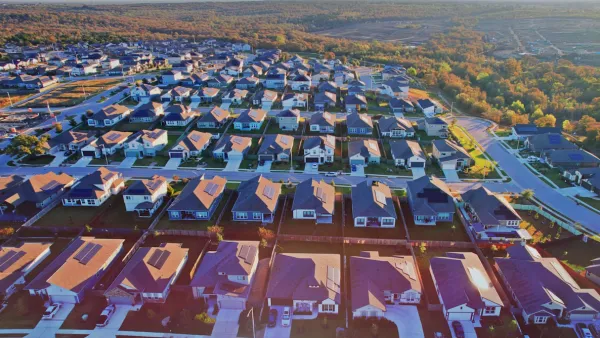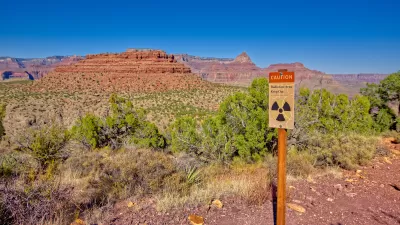Friday brought word that Energy Secretary Steven Chu will leave the Obama administration once a replacement is in place. With his departure, each of the cabinet's energy and environmental positions remain vacant.
Chu, a Nobel Prize-wining physicist, who helped lead the administration's efforts to tackle climate change through "expanded federal support for low-carbon energy" leaves behind a mixed legacy from his time at the helm of the Energy Department, reports Ben Geman.
"President Obama thanked Chu in a statement Friday and said the outgoing secretary 'brought to the Energy Department a unique understanding of both the urgent challenge presented by climate change and the tremendous opportunity that clean energy represents for our economy.'”
“And during his time as Secretary, Steve helped my Administration move America towards real energy independence. Over the past four years, we have doubled the use of renewable energy, dramatically reduced our dependence on foreign oil, and put our country on a path to win the global race for clean energy jobs,” Obama said.
But Chu will also be remembered for "the 2011 collapse of the solar panel manufacturer Solyndra, which received a half-billion-dollar federal loan in 2009, [and] prompted GOP-led Capitol Hill hearings and an avalanche of election-season attacks."
"The long list of potential nominees to replace Chu includes former Sen. Byron Dorgan (D-N.D.); former Michigan Gov. Jennifer Granholm (D), Deputy Energy Secretary Daniel Poneman; and Sue Tierney, a managing principal at the Analysis Group who was DOE’s assistant secretary for policy under former President Clinton," says Geman. "Others include former Colorado Gov. Bill Ritter (D); Center for American Progress founder John Podesta, who was Clinton’s chief of staff; and Stanford University’s Dan Reicher, who formerly headed climate and energy initiatives for Google and served on Obama’s transition team."
FULL STORY: Steven Chu stepping down as Obama’s Energy secretary

Planetizen Federal Action Tracker
A weekly monitor of how Trump’s orders and actions are impacting planners and planning in America.

Restaurant Patios Were a Pandemic Win — Why Were They so Hard to Keep?
Social distancing requirements and changes in travel patterns prompted cities to pilot new uses for street and sidewalk space. Then it got complicated.

Map: Where Senate Republicans Want to Sell Your Public Lands
For public land advocates, the Senate Republicans’ proposal to sell millions of acres of public land in the West is “the biggest fight of their careers.”

Maui's Vacation Rental Debate Turns Ugly
Verbal attacks, misinformation campaigns and fistfights plague a high-stakes debate to convert thousands of vacation rentals into long-term housing.

San Francisco Suspends Traffic Calming Amidst Record Deaths
Citing “a challenging fiscal landscape,” the city will cease the program on the heels of 42 traffic deaths, including 24 pedestrians.

California Homeless Arrests, Citations Spike After Ruling
An investigation reveals that anti-homeless actions increased up to 500% after Grants Pass v. Johnson — even in cities claiming no policy change.
Urban Design for Planners 1: Software Tools
This six-course series explores essential urban design concepts using open source software and equips planners with the tools they need to participate fully in the urban design process.
Planning for Universal Design
Learn the tools for implementing Universal Design in planning regulations.
Heyer Gruel & Associates PA
JM Goldson LLC
Custer County Colorado
City of Camden Redevelopment Agency
City of Astoria
Transportation Research & Education Center (TREC) at Portland State University
Camden Redevelopment Agency
City of Claremont
Municipality of Princeton (NJ)





























